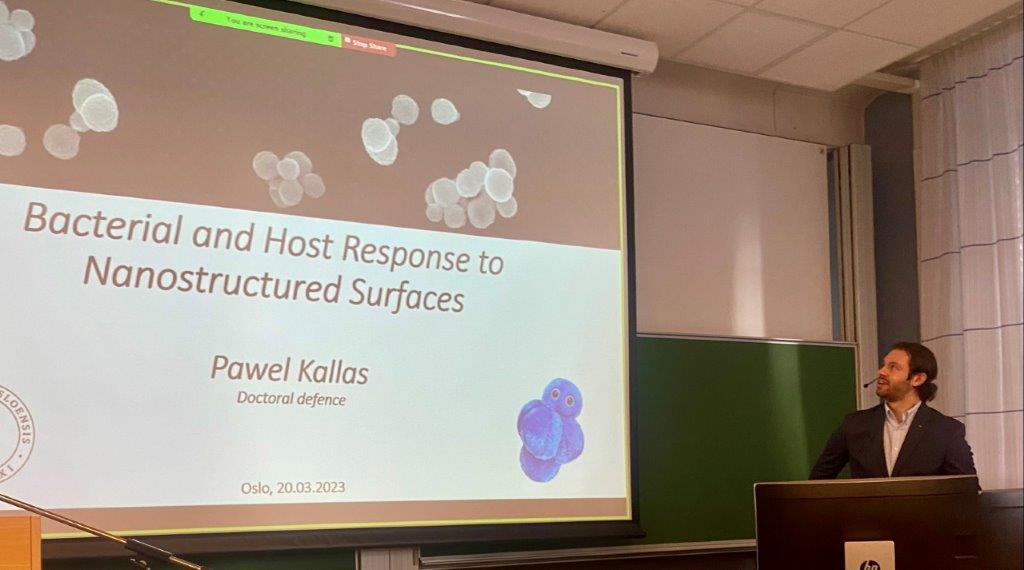
Thesis summary
The Department is proud to announce the completion of another important research project on the interaction of bacteria with nanostructured surfaces. The project, undertaken by one of our scholars, focused on the effects of nanoscale topographies on bacterial adhesion and the potential to reduce the risk of biomaterial-associated infections. Pawel investigated the adhesion of different bacteria species and deletion mutants, human fibroblasts, and proteins to surfaces exhibiting nanoscale features. The overall effect of nanostructured surfaces on bacterial adhesion has yet to be well understood. The research aimed to provide insight into developing new nanopatterned structures with anti-adhesion bacterial properties.
The study hypothesised that surfaces with nanoscale topographies could affect the adhesion of bacteria. This statement was tested against the null hypothesis that the observed differences in bacterial adhesion on fabricated nanostructured surfaces are due to chance alone. The research employed a flow cell system to examine bacterial adhesive behavior towards surfaces with nanostructure features under controlled conditions. His study was divided into three individual papers, each addressing specific objectives related to the general hypothesis. Paper I investigated the effect of nanoparticle gradients on the adhesion of Streptococcus mitis and Staphylococcus aureus, as well as human dermal fibroblasts. Paper II explored the effect of surface nanopatterning on adhesion of different strains of Escherichia coli, including fimbriae-mediated adhesion. Paper III examined the effect of surface nanopatterning on protein-mediated adhesion of E. coli.
This research provides valuable insights into the potential of nanopatterned surfaces to reduce the risk of biomaterial-associated infections. We congratulates Pawel on his outstanding work which has been published in these three papers:
Protein-coated nanostructured surfaces affect the adhesion of Escherichia coli
Adhesion of Escherichia Coli to Nanostructured Surfaces and the Role of Type 1 Fimbriae
Effect of silica nano-spheres on adhesion of oral bacteria and human fibroblasts
Evaluation committee
-
Professor Anton Ficai, Polytechnic University of Bucharest, București, Romania
-
Researcher Dr. Małgorzata Krok-Borkowicz, AGH University of Science and Technology, Krakow, Polen
-
Researcher Dr. Athanasios Saragliadis, IBV, UiO
Supervisors
- Professor Håvard J Haugen
- Dr. Håkon Valen Rukke
- Prof. Martin Andersson
- Dr. Mats Hulander







